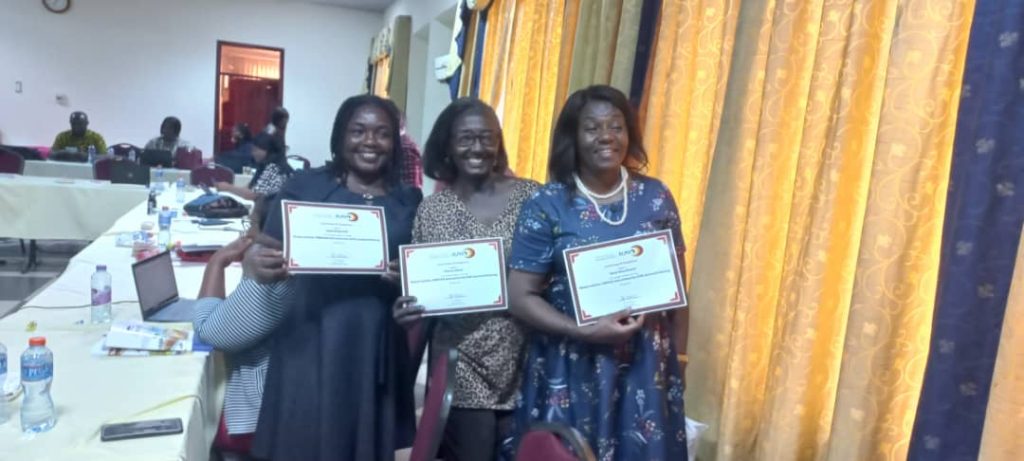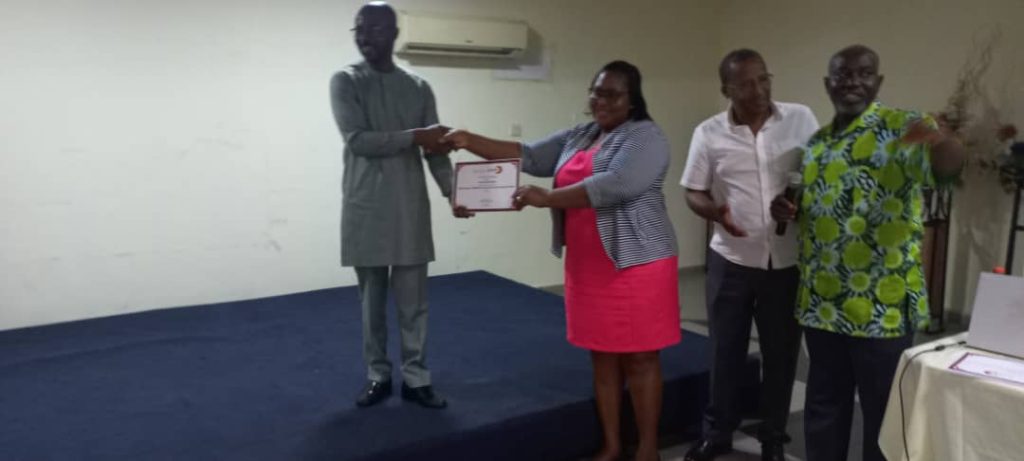By Albert Allotey
Accra, Oct. 30, GNA – Over 30 divisional health staff of the Ghana Health Service (GHS) have completed a four-day review and capacity building training with a call for the revision of the community scorecard action plan to add more columns to the action tracker.
They said the revision would help to differentiate between the root cause of the bottleneck in the health delivery while adding the name of the programme under which the problem falls.
They made the call in a joint report after they had made presentations on their quarterly findings on the reproductive, maternal, newborn, child, adolescent health and nutrition (RMNCAH&N) using the online scorecard (platform).
The workshop was organised by the GHS in collaboration with the African Leaders Malaria Alliance (ALMA) and facilitated by Mr Emmanuel Ayire Adongo, a Consultant and Dr Ketema Aschenaki Bizuneh, Senior Programme Coordinator-RMNCAH both from ALMA.
The scorecard is a colour-coded management tool that helps Ghana to track performance of priority indicators from their strategic plan.
It uses existing quarterly data from routine sources and integrated into existing management processes, and used for action, accountability and advocacy at national and subnational levels through data visualization and management functionalities.
The scorecard indicates three colours; red, which means no progress, yellow – some progress, and green – action achieved.
The report said it came to light during the presentation by the health programme officers that family planning was generally doing well in the regions, “However, drilling down into the Savannah Region’s districts, there were so many red colours in their districts and subdistricts scorecards.

“The programme attributed capacity-building problems and logistics management as the main challenges of the Savannah Region therefore Savannah should be part of all capacity-building activities,” it said.
The programme stated that Ahafo Region on the other hand almost had all green colours which meant that they were doing well but Asutifi North was a place of concern because it was the only district that was performing the lowest, hence the colour red.
“Knowledge and understanding of data recording and report could be an issue in the Ahafo Region hence, the green colour in the scorecard. Nationally, myths and misconceptions continue to be a general challenge of family planning. All these bottlenecks with their corresponding action items and deadlines were captured in the scorecard,” the report stated.
On safe motherhood, it stated that Ashanti Region came up leading with the highest maternal mortality ration of 957/100,000 and that in the quarter under review, Northern Region had the highest number, and the programme recommended the root cause should be identified.
“With the bottleneck being a lack of knowledge in EmONC, the programme indicated in the action items that there was going to be training for service providers on EmONC and it was recommended that all indicators like skilled delivery, anaemia at` 36 weeks among others may need to improve to help the maternal mortality rate,” the report said.
It recommended the intensification of maternal audits to identify the root cause of the high maternal mortality rate.
On the newborn and child health, it stated that the Eastern Region contributed the highest number to stillbirth rates and drilling down, New Juaben South, Nsawam Adoagyiri and Afram Plains had the highest numbers
“It was justified that all these districts had high-volume facilities and that was why they had those numbers,” it said.
On Micronutrient Deficiency Control programme, it said the Northeast Region was moving from better to worse and it was recommended that work improvement teams should be set up within departments.
The report said these were some of the issues that informed the participants to call for the revision of the scorecard to create more columns on the action tracker.
Mr Adongo said it was important to strengthen regular scorecard utilization at all levels, including at regional and district levels through the district assemblies to improve the health of the people.
Dr Bizuneh stated that; “as the scorecard is used for information sharing it could also be used for advocacy for resource mobilization.”

Dr Chris Opoku Fofie, Deputy Director, Reproductive and Family Health of the GHS in a closing remark expressed gratitude to the participants for their hard work throughout the four-day sessions and urged them not to rest on their oars but to continue to impart the knowledge they have acquired to others in the profession for a holistic health delivery.
The participants were awarded certificates.
GNA